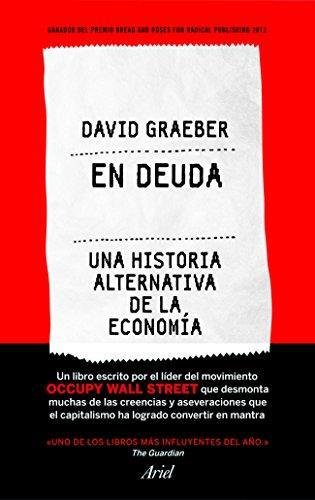Un dels llibres més interessants que he llegit mai!
Que els economistes van, més que res, muntar-se un xiringuito a mida en formalitzar aquest camp ja ho sabem, però aquest llibre els deixa despullats... I en el procés s'aprenen moltes coses!
Ens dóna finestres a que diferents cultures han organitzat la vida econòmica de mil maneres diferents. La antropologia està interessantíssima! Resol, en aquest cas, aquella carència de la just or ia com a successió de reis i batalles, ja que aquí apareixen en tant que poden afectar les vides de la gent.
En aquest llibre viatgem per tots els continents i des de que prehistòria fins al present, traient sic de tot arreu.
Hi veiem com la noció de propietat que tenim es remunta a l'Imperi Romà, i com d'agressiva és; com els mites dels zombis i morts vivents són ecos de les víctimes de l'esclavitud; com el budisme entrava en contradiccions i tenia monestirs xapats d'or... I …
Que els economistes van, més que res, muntar-se un xiringuito a mida en formalitzar aquest camp ja ho sabem, però aquest llibre els deixa despullats... I en el procés s'aprenen moltes coses!
Ens dóna finestres a que diferents cultures han organitzat la vida econòmica de mil maneres diferents. La antropologia està interessantíssima! Resol, en aquest cas, aquella carència de la just or ia com a successió de reis i batalles, ja que aquí apareixen en tant que poden afectar les vides de la gent.
En aquest llibre viatgem per tots els continents i des de que prehistòria fins al present, traient sic de tot arreu.
Hi veiem com la noció de propietat que tenim es remunta a l'Imperi Romà, i com d'agressiva és; com els mites dels zombis i morts vivents són ecos de les víctimes de l'esclavitud; com el budisme entrava en contradiccions i tenia monestirs xapats d'or... I com la burocràcia xinesa s'hi va encarar.
Un pou de coneixement per recordar que la vida econòmica podria ser molt diferent i complir millor el seu suposat objectiu. Que quan algú diu allò de "la naturalesa humana és xunga", en realitat parla d'una doctrina que té uns 500 anys i ens imposa una violència brutal que ha anat desfent les societats.
I que ho podem fer diferent, millor.



